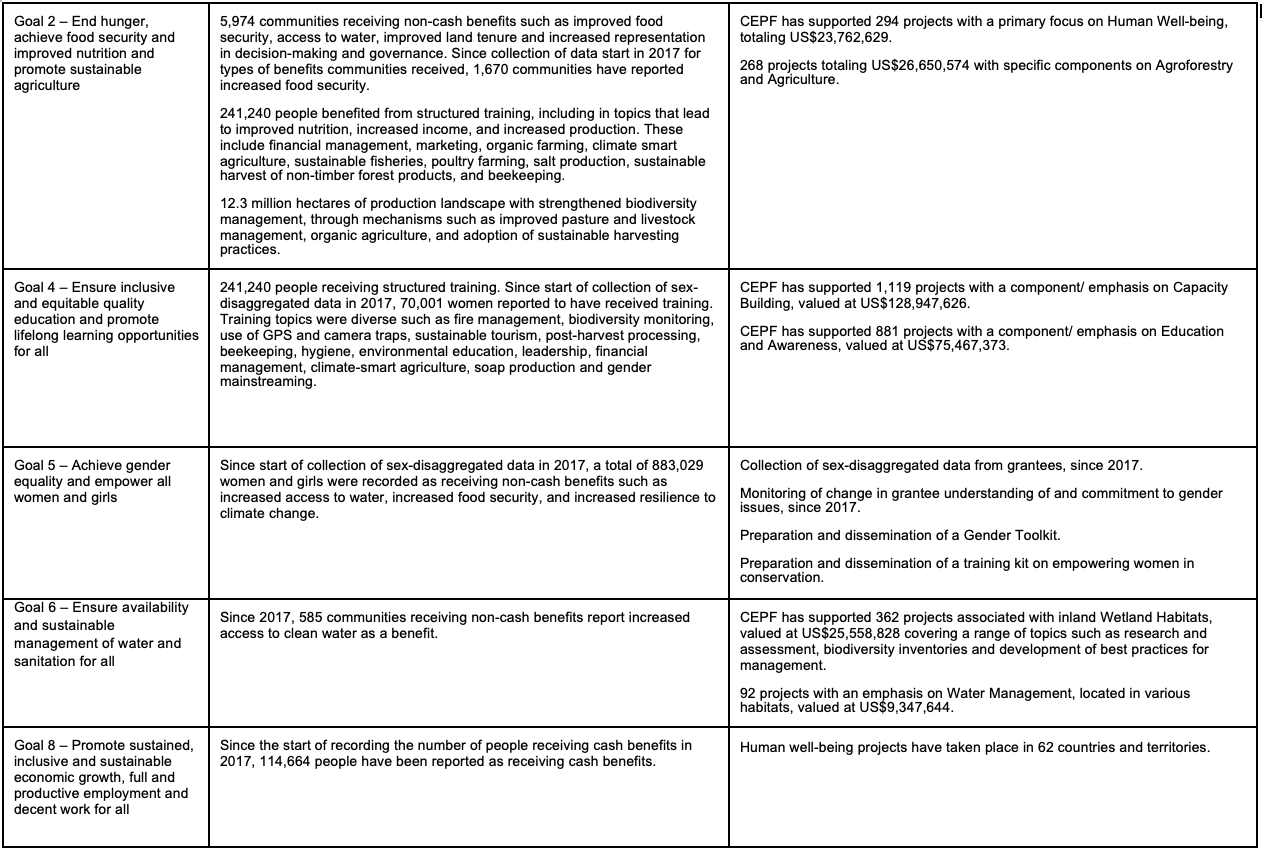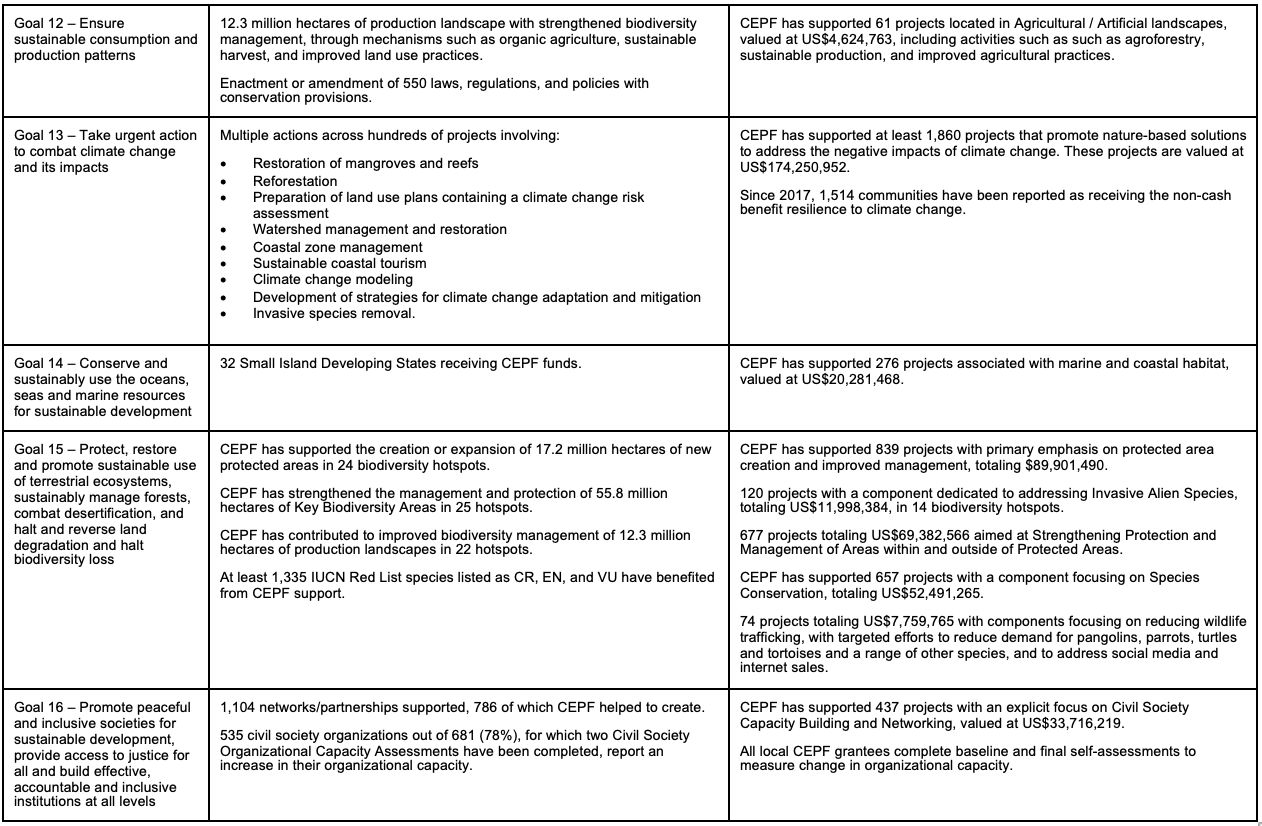CEPF and the SDGs

The ecological crisis, and the large-scale destruction of biodiversity, can threaten the very existence of the human species.Pope Francis, speech to the U.N. General Assembly, September 25, 2015
The importance of biodiversity to the Sustainable Development Goals
Biodiversity is indispensable to sustainable development and human well-being.
It supports agriculture-maintaining pollinators, water resources and fertile soils. It delivers key ingredients for medicines and mitigates climate change by sequestering carbon and buffering people from the effects of extreme weather. And it can become a renewable source of energy and a supplier of material goods. So, naturally, it has an important role in the global sustainable development agenda.
In September 2015, the United Nations adopted 17 goals to guide global development efforts through the year 2030. The Sustainable Development Goals (SDGs) seek to improve human well-being by eradicating economic and social inequalities, improving health and education, supporting a healthy planet, and promoting safe and peaceful societies.
The Critical Ecosystem Partnership Fund (CEPF) supports the SDGs and the U.N.’s recognition that sustaining a healthy environment is vital to the long-term well-being of people.
CEPF's grantees have made contributions to several of the goals, particularly Goal 15, which focuses on CEPF’s core business—conservation of biodiversity and critical ecosystems. The following table includes contributions to the SDGs via CEPF-funded projects through 30 June 2024.

